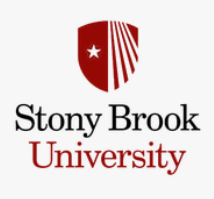Billionaire Len Blavatnik has been instrumental in advancing scientific research through his philanthropic efforts, notably by providing $250,000 unrestricted grants to young scientists and engineers in the U.S. These awards, established in 2014, aim to support early-career researchers under the age of 42, enabling them to pursue innovative projects without the constraints of traditional funding limitations.
Dr. Steven Skiena is a Distinguished Teaching Professor of Computer Science at Stony Brook University whose research interests include algorithm design, data science and their applications to biology. He was co-founder and the Chief Science Officer of General Sentiment, a social media and news analytics company. He is also the author of several popular books in the fields of algorithms, programming, and data science.
Stony Brook University has established a new AI hub, underscoring its commitment to advancing artificial intelligence research and applications. The initiative aims to foster innovation and collaboration across various disciplines, positioning the university as a leader in AI-driven discovery and innovation. This development reflects the growing importance of AI in addressing complex challenges
On May 9, 2019, Stony Brook University officially launched the Institute for AI-Driven Discovery and Innovation at Bloomberg headquarters in New York. The Institute aims to advance research in human-machine symbiosis, emphasizing AI technologies that enhance rather than replace human intelligence. Established with $4.5 million in grants from SUNY’s Empire Innovation Program, along with university and private funding, the Institute focuses on interdisciplinary collaboration across fields such as healthcare, infrastructure, education, and finance.
Researchers at Stony Brook University and Salesforce AI Research reveal why professional writers often feel disappointed with Large Language Models, proposing a manually polished model that can aid in aligning a Machine’s Language to our own.
On May 9, 2019, Stony Brook University officially launched the Institute for AI-Driven Discovery and Innovation at Bloomberg headquarters in New York. The Institute aims to advance research in human-machine symbiosis, emphasizing AI technologies that enhance rather than replace human intelligence. Established with $4.5 million in grants from SUNY’s Empire Innovation Program, along with university and private funding, the Institute focuses on interdisciplinary collaboration across fields such as healthcare, infrastructure, education, and finance.
The article "Is AI for You?" from Long Island Business News explores how artificial intelligence (AI) can benefit forward-thinking entrepreneurs by enhancing business growth, decision-making, and innovation. Despite common misconceptions of AI as complex or threatening, experts emphasize its potential to streamline operations and foster creativity. Kerstin Kleese van Dam, director of Brookhaven
At a recent AI conference co-hosted by the Long Island Association (LIA) and HIA-LI, XLabs CEO Radhika Dirks urged local businesses to integrate artificial intelligence into their operations to remain competitive. Dirks emphasized that AI adoption should be a strategic initiative involving leadership and cross-functional teams, not just IT departments. She highlighted AI's potential, citing her
Steven Skiena, director of Stony Brook University's Institute for AI-Driven Discovery and Innovation, is utilizing a custom AI tool dubbed the "Poach-o-matic" to identify candidates for faculty positions. This approach aims to uncover exceptional talent that might otherwise be overlooked, particularly for roles in the Departments of Computer Science and Biomedical Informatics. Skiena notes a gr
Stony Brook University is advancing artificial intelligence research through its Institute for AI-Driven Discovery and Innovation. The institute focuses on integrating AI across disciplines, including medicine, engineering, and social sciences. Notable projects involve developing smart infrastructure materials, utilizing nanobots for neurological treatments, and employing AI to analyze social m



